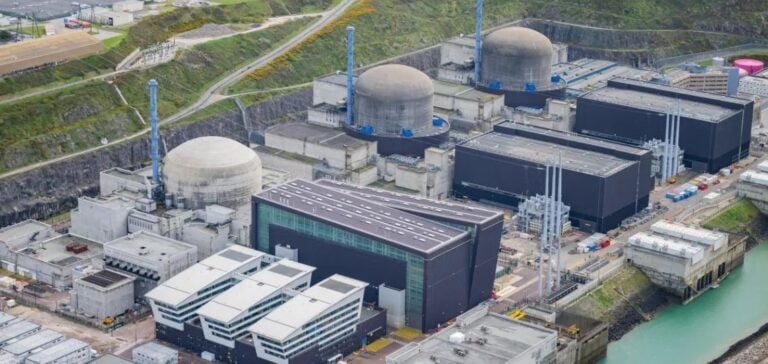The European Pressurized Reactor (EPR) of Flamanville, recently connected to the power grid, marks the culmination of a 17-year project plagued by technical and financial hurdles. While this achievement was long-awaited, it highlights the structural challenges of the French nuclear industry while paving the way for an ambitious revival program.
A challenging construction: key dates and facts
Launched in 2007 at the Flamanville site in Normandy, the EPR was initially scheduled for completion in 2012 at an estimated cost of €3.3 billion. However, technical and organizational issues repeatedly delayed the project.
In 2015, the French Nuclear Safety Authority (ASN) identified serious defects in the reactor vessel, including abnormal steel composition. Additional issues, such as welding defects in the primary circuit and cracks in the concrete containment, further delayed the project. These setbacks have quadrupled the final cost, which now stands at €13.2 billion according to EDF—or €19 billion, according to the French Court of Auditors, when financing overruns are included.
These challenges are not unique to France. In Finland, the Olkiluoto EPR was delayed by 12 years before becoming operational in 2023. In China, the two EPRs at Taishan encountered technical incidents despite starting operations in 2018 and 2019, including early corrosion reported in 2023.
Lessons from a struggling project
The construction of the Flamanville EPR exposed structural weaknesses in the French nuclear industry. One major cause identified is the loss of expertise resulting from a decades-long hiatus in building new reactors. Since Civaux 2, commissioned 25 years ago, no reactor had been built in France, creating a generational gap among engineers and technicians.
The French Court of Auditors also pointed out a lack of coordination among project stakeholders, including EDF and regulatory authorities. Insufficient oversight and overly optimistic initial estimates contributed to a cascade of costly errors.
To address these issues, EDF is developing a new generation of reactors called EPR2. These reactors will feature digital designs and prefabrication techniques to reduce construction errors and delays.
An ambitious but fragile program
In February 2022, President Emmanuel Macron announced the revival of civilian nuclear power with plans to build six EPR2 reactors, alongside an option for eight additional reactors. This program, the first in decades, is part of a dual strategy to reduce greenhouse gas emissions and strengthen energy independence, particularly in light of Russia’s role as a major global supplier of nuclear technology.
However, financial challenges loom large. The initial cost estimate for the six EPR2 reactors has already risen by 30%, reaching €67.4 billion. Heavily indebted, EDF must also address workforce shortages and avoid repeating past mistakes.
Public debates: a democratic challenge
Nuclear energy remains a divisive issue in France. Public consultations held for the upcoming reactors in Penly and Gravelines have highlighted deep concerns over environmental risks, radioactive waste management, and economic impacts.
Luc Marin, chair of the Gravelines debate, summarized public sentiment as “concerns about nuclear risks, radioactivity, waste, and more broadly, the environment.” These discussions aim to enhance transparency in nuclear projects but also contribute to delays.
An international perspective
The revival of French nuclear power extends beyond national borders. EDF is in talks with several countries, including the Netherlands, Poland, and Finland, for new reactor construction. However, competition is fierce. In the Czech Republic, EDF lost a contract to South Korea’s Kepco, underscoring the competitiveness challenges facing the French nuclear sector.
Toward a new era with SMRs
In addition to EPR2 reactors, France is also exploring Small Modular Reactors (SMRs). These smaller, less expensive units could meet specific needs, such as industrial electrification. EDF recently redesigned its Nuward project, although it remains at the prototype stage.






















